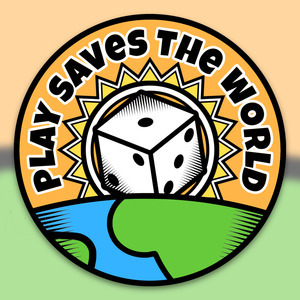Episode 38
Imitating God By Playing Games (Moltmann part 2)
September 10th, 2023
59 mins 52 secs
Tags
About this Episode
Moltmann, A Theology of Play part 2
Pp 15-25
Did God create the world as an act of play?
God is a free creator - could have made the world or not, yet is still divine so it can’t be just random.
God did not have to create the world, but neither did God make something random.
The world is meaningful but not necessary – and necessary labor will not save us. Work is productive and gainful but not play.
It is a game in the sense – God made the world for God’s pleasure, God’s play
Prov 8:30-31
then I was beside him, like a master worker,
and I was daily his delight,
playing before him always,
playing in his inhabited world
and delighting in the human race.
Without the freedom of play, the world turns into a desert.
How we imitate God
God can make and play out of nothingness because of divinity – we can only play with reality and created things. But we imitate God when we receive the kingdom of God like a child, when we absorbed and serious about a game but also transcend ourselves in knowing it is just a game.
"Where everything must be useful and used, faith tends to regard its own freedom as good for nothing." (15)
Henri Nouwen, In the Name of Jesus: one of the greatest temptations of the Christian leader (leader of faith) is to be relevant. "Relevance" is such a difficult topic - both encouraged and discouraged in the church. Perhaps it is really the temptation "to be needed" - to make others dependent on oneself.
We are to glorify God and enjoy God forever in the Westminster Catechism 1647.
So not through our usefulness or work or purposes, in our service, but in our enjoyment. We negotiate this in a society that only rewards usefulness, labor, and consumption.
The problem of the Puritan work ethic.
The other challenge of religion only being about ethics, and not about aesthetics.
“To put it simply, the birds are singing more than Darwin permits” Buytendijk.
Instead of life being “the seriousness of making history,” it becomes the “calm rejoining in existence itself.” Otherwise the seriousness of making history can be demonic, despairing, or all about us (23).
To not only play but to be played, as the game of life impacts us. We might be “sheltered by the game,” because “the loser wins” (24, quoting Péguy).
Victor Frankl, Man's Search for Meaning - our most fundamental drive is in life is for meaning.
The spiritual benefits of creation and games (18)
- Sincerity
- Mirth
- Suspense
- Relaxation
- Full presence
- Transcendence
- Freedom
Our purpose--the purpose of creation--AND the purpose of play--is not found in usefulness or meeting goals, but in the "demonstrative value of being" (Buytendijk, Dutch) (19)
Seeing the meaning of life only in terms of usefulness will inevitably lead to a crisis. (19). Ideologies that seek to tell us otherwise are simply trying to turn us into cogs in their machinery.
"Infinite responsibility destroys a human being because he is only man and not god." (23)
Play shifts the focus away from achievement and more toward simply being.
